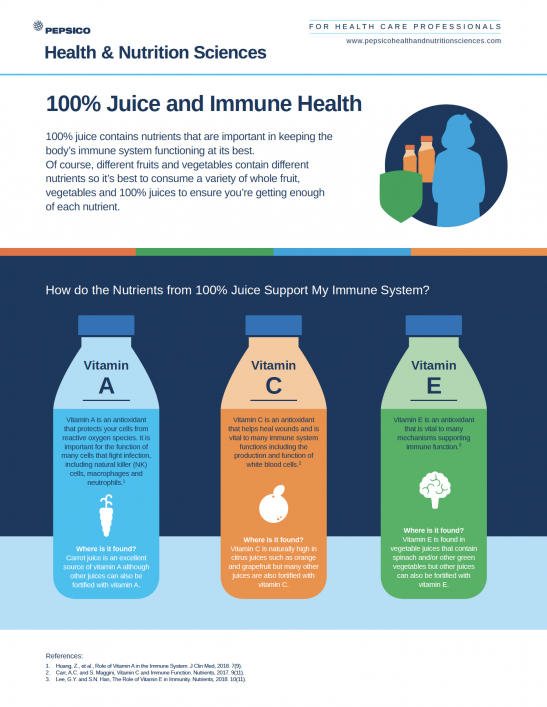Fabiano, G. A., Shinn, L. M., & Antunes, A. E. C. (2023). Relationship between Oat Consumption, Gut Microbiota Modulation, and Short-Chain Fatty Acid Synthesis: An Integrative Review. Nutrients, 15(16), 3534. doi:10.3390/nu15163534
Abstract:
The gut microbiota consists of a set of microorganisms that colonizes the intestine and ferment fibers, among other nutrients, from the host’s diet. A healthy gut microbiota, colonized mainly by beneficial microorganisms, has a positive effect on digestion and plays a role in disease prevention. However, dysregulation of the gut microbiota can contribute to various diseases. The nutrition of the host plays an important role in determining the composition of the gut microbiota. A healthy diet, rich in fiber, can beneficially modulate the gut microbiota. In this sense, oats are a source of both soluble and insoluble fiber. Oats are considered a functional ingredient with prebiotic potential and contain plant proteins, unsaturated fats, and antioxidant compounds. The impact of oat consumption on the gut microbiota is still emerging. Associations between oat consumption and the abundance of Akkermansia muciniphila, Roseburia, Lactobacillus, Bifidobacterium, and Faecalibacterium prausnitzii have already been observed. Therefore, this integrative review summarizes the findings from studies on the relationship between oat consumption, the gut microbiota, and the metabolites, mainly short-chain fatty acids, it produces.
Taylor, J. R. N., Rehm, C. D., L. de Kock, H., Donoghue, S., Johnson, A., Thompson, C., & Berezhnaya, Y. (2023). South African Consumers’ Knowledge, Opinions and Awareness of Whole Grains and Their Health Benefits: A Cross-Sectional Online Survey. Nutrients, 15(16), 3522. doi.org/10.3390/nu15163522
Abstract
Evidence indicates that whole-grain food consumption reduces the risk of cardiovascular disease, type-2 diabetes, and some cancers. Increasing whole-grain consumption in developing countries is likely to significantly benefit the health of the population. However, there is very limited information on consumer whole-grain knowledge, attitudes, and behaviors in developing countries. An online cross-sectional survey was conducted among 1000 South African consumers with sufficient income to make food purchase choices and who were generally representative in terms of gender, age, and ethnicity. Most respondents (64%) were confident of their whole-grain knowledge. However, 60% of all participants selected incorrect definitions of whole grains. Whilst most correctly identified common cereals as whole grains, at most 50% of participants correctly identified common whole-grain foods. Also, whilst most (67%) thought that they were consuming enough whole grains, the majority (62%) underestimated the recommended level of consumption. Furthermore, respondent knowledge regarding whole-grain food attributes and the health benefits of whole-grain consumption was generally poor. Clearly, consumer-focused strategies are needed in developing countries to increase whole-grain food consumption to help the broader population achieve a healthy and sustainable diet. Actions proposed include: simple-to-understand information on whole-grain content relative to recommendations on food product labels, the provision of whole-grain foods in school nutrition schemes, and coordinated social and behavior change communication initiatives.
Dioum, E. M., Schneider, K. L., Vigerust, D. J., Cox, B. D., . . . Furman, D. (2022). Oats lower age-related systemic chronic inflammation (iAge) in adults at risk for cardiovascular disease. Nutrients, 14(21), 4471. doi:10.3390/nu14214471
Abstract:
Despite being largely preventable, cardiovascular disease (CVD) is still the leading cause of death globally. Recent studies suggest that the immune system, particularly a form of systemic chronic inflammation (SCI), is involved in the mechanisms leading to CVD; thus, targeting SCI may help prevent or delay the onset of CVD. In a recent placebo-controlled randomized clinical trial, an oat product providing 3 g of β-Glucan improved cholesterol low-density lipoprotein (LDL) levels and lowered cardiovascular risk in adults with borderline high cholesterol. Here, we conducted a secondary measurement of the serum samples to test whether the oat product has the potential to reduce SCI and improve other clinical outcomes related to healthy aging. We investigated the effects of the oat product on a novel metric for SCI called Inflammatory Age® (iAge®), derived from the Stanford 1000 Immunomes Project. The iAge® predicts multimorbidity, frailty, immune decline, premature cardiovascular aging, and all-cause mortality on a personalized level. A beneficial effect of the oat product was observed in subjects with elevated levels of iAge® at baseline (>49.6 iAge® years) as early as two weeks post-treatment. The rice control group did not show any significant change in iAge®. Interestingly, the effects of the oat product on iAge® were largely driven by a decrease in the Eotaxin-1 protein, an aging-related chemokine, independent of a person’s gender, body mass index, or chronological age. Thus, we describe a novel anti-SCI role for oats that could have a major impact on functional, preventative, and personalized medicine.
Odintsova, V., Klimenko, N., Tyakht, A., Volokh, O., . . . Berezhnaya, Y. (2021). Yogurt fortified with vitamins and probiotics impacts the frequency of upper respiratory tract infections but not gut microbiome: A multicenter double-blind placebo controlled randomized study. Journal of Functional Foods, 83, 104572. doi:10.1016/j.jff.2021.104572
Abstract:
Probiotics and vitamins can impact immune responses and modulate gut microbiome. We evaluated the effects of consuming a yogurt fortified with vitamins and probiotic Lacticaseibacillus casei and rhamnosus on upper respiratory tract infections frequency and gut microbiome during a 3-month intervention. The study included 2 case groups (consuming different flavours) and a placebo group of healthy adults (n = 158–160 in each group). The effects on URTI-related parameters in both case groups were gender-specific. The female subjects had lower URTI incidence and frequency, while for the males no significant differences were found. The URTI duration was shorter in one of the probiotic groups for females and in both such groups - for males. The observed changes in microbiome composition, blood and stool parameters were not different from those observed in the placebo group. Consumption of fortified fermented dairy foods is promising for improving immunity status within the general population.
Chen, O., Mah, E., Dioum, E., Marwaha, A., . . . Chu, Y. (2021). The role of oat nutrients in the immune system: A narrative review. Nutrients, 13(4), 1048. doi:10.3390/nu13041048
Abstract:
Optimal nutrition is the foundation for the development and maintenance of a healthy immune system. An optimal supply of nutrients is required for biosynthesis of immune factors and immune cell proliferation. Nutrient deficiency/inadequacy and hidden hunger, which manifests as depleted nutrients reserves, increase the risk of infectious diseases and aggravate disease severity. Therefore, an adequate and balanced diet containing an abundant diversity of foods, nutrients, and non-nutrient chemicals is paramount for an optimal immune defense against infectious diseases, including cold/flu and non-communicable diseases. Some nutrients and foods play a larger role than others in the support of the immune system. Oats are a nutritious whole grain and contain several immunomodulating nutrients. In this narrative review, we discuss the contribution of oat nutrients, including dietary fiber (β-glucans), copper, iron, selenium, and zinc, polyphenolics (ferulic acid and avenanthramides), and proteins (glutamine) in optimizing the innate and adaptive immune system’s response to infections directly by modulating the innate and adaptive immunity and indirectly by eliciting changes in the gut microbiota and related metabolites.


